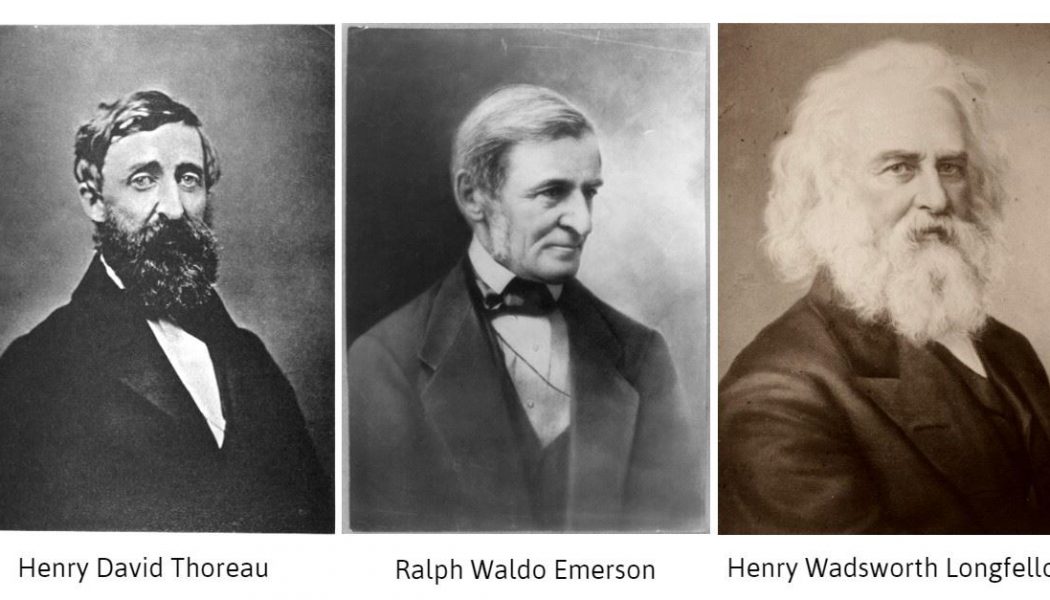Blog
What Is Transcendentalism? Beliefs of this American Movement
Transcendentalism Definition Transcendentalism was a movement that arose in America, specifically New England, in the early nineteenth century, coming into its own in the 1830’s. Rather than an actual religious movement, adherents considered it a way of thinking. Though specific beliefs may have differed from person to person, in general, transcendentalism can be defined as what GotQuestions.org calls “a philosophy of intuition as a guide for spirituality.” Some transcendentalists identified as Christians, usually Unitarians, and others as agnostics. The beliefs can be traced to roots in the ideas of Immanuel Kant, ancient Indian and Chinese scriptures, Platonism, and German and English Romanticism. As the way of thinking grew, it was reflected in the work of several notable American write...
New Podcast: “Answers to Tough Questions About the Faith”
This morning I did an interview on Moody Radio called Answers to Tough Questions about the Faith. The hosts asked me to answer the questions in light of recent high-profile defections from Christianity. We need this because we have nothing to fear from honest questions. Click here sign up for the free email sermons.
Boomerang of Encouragement – Girlfriends in God – August 17, 2018
August 17, 2018Boomerang of EncouragementMary Southerland Today’s Truth Praise be to the God and Father of our Lord Jesus Christ, the Father of compassion and the God of all comfort, who comforts us in all our troubles, so that we can comfort those in any trouble with the comfort we ourselves have received from God (2 Corinthians 1:3-4, NIV). Friend to Friend You have heard the old saying, “What goes around, comes around.” Truer words were never spoken when talking about encouragement. We all need encouragement – especially during the tough times. Those “tough” times can come in all shapes, sizes and forms and can vary from person to person. We have one child who has been known to run an extremely high fever, walk around on a broken foot, and have a headache that would put me in bed… all w...
What Does It Mean to Be in the Presence of God? Isn’t He Always with Us?
Have you ever seen a room light up the moment a famous person walks into it? There is something intangible yet very real about their magnetism. Their larger-than-life persona mysteriously charges you, maybe even changes you, and makes you want to capture even a momentary smile from them. That’s an inadequate picture of what it’s sometimes (not always) like to be in the presence of God. “The most common Hebrew term for ‘presence’ is panim, which is also translated ‘face,’ implying a close and personal encounter with the Lord,” according to Baker’s Biblical dictionary. An example of the Hebrew panim is in Genesis 3:8. In the New Testament, the Greek words prosopon and enopion are similar in meaning. Here are six truths about God’s presence taught in Scripture. 1. God’s presence is ever...
How to Experience the Blessing of Community: Shalom
Shalom is commonly understood to mean “peace” or “health” or “prosperity.” It carries within it the idea of completeness. Cornelius Plantinga writes that the word shalom is “the webbing together of God, humans, and all creation in justice, fulfillment and delight.” Shalom is the vision of community; it is what community strives to be. It reminds me of something I once read about Mother Teresa. When asked how she could give so much of herself to the poor, she would always say that when she looked at them, she saw Jesus in a distressing disguise. That is the heart of authentic community—being Jesus to others and seeing Jesus in others. If you’re married, you are to be interacting with our spouse as if unto Him. If you’re a child, you’re obeying as if unto Him. If an employee, you’re working ...
How to Lean Into Grace When Someone You Admire Abandons the Faith
Evangelical author Joshua Harris announces on Instagram that he no longer considers himself a Christian. Evangelical songwriter Marty Sampson now says the same thing about himself. The Internet is atwitter with opinions on all of that: from atheists, from Christians, and everyone in between. As sad as I am about all of this, I can’t help but think about lots of people I’ve known, many of whom would never make headlines, who just, sometimes very quietly, walked away from the faith. I would imagine that’s happened to you too, with someone you love, or someone you admire, maybe even someone who mentored you in the faith. And, I don’t know about you, but I know how every one of those stories made me feel. I would often be angry, as though the person had personally betrayed me. Sometimes ...
Reset Your Relationships – Beloved Women – August 16, 2019
Reset Your Relationships – Beloved Women – August 16, 2019 READ “Perfume and incense bring joy to the heart, and the pleasantness of a friend springs from their heartfelt advice.” – Proverbs 27:9 NIV TODAY’S ENCOURAGEMENT Relationships matter. Maintaining strong friendships and relationships take work. Whether it is a friendship, marriage, or significant other, we have all allowed life’s demands to distract us from nurturing these important relationships. I often do a self-check asking myself, how can I be a better friend? A stronger spouse? Can you do a quick self-check of your relationships? Ask yourself: How can I be more intentional about spending quality time with those who matter to me? It is important that we value quality time with loved ones over non-stop busynes...
What Is Exhortation in the Bible? Definition and Meaning
Exhortation Definition In modern usage, exhort can mean “to incite by argument or advice: urge strongly.” One might use exhort interchangeably with summon, beseech, entreat, or encourage. Words like these are used frequently in scripture, but the Greek takes us deeper into the heart of the New Testament. Parakaleó combines “pará ‘from close-beside’ and kaléō, ‘to call’.” In other words, to “‘make a call’ which is ‘close-up and personal.’” Exhortation Meaning in the Bible Paul, John, and other writers of Scripture meant this word as an intimate call to fellow believers, even when the call was not face-to-face but from prison. His use of exhort in this context seems to combine two meanings – to admonish and to encourage – because of the urgency and heart of fellowship behind what Paul ...
hide
I will play hide-and-seek with youif that’s the game you want to play.I will cover my eyes and count while yourun run and imagine how to be invisible,situate yourself so thespace envelopesyou fully maybe by shadow maybe by sound,your own breathing held so you can’tfeel your heart, as if that would work;but I will uncover my eyes,unwrap fingers from browand begin the first steps oflooking looking for what youhope I will find again. -jennifer j. camp This post appeared originally at jenniferjcamp.com
How Well Do We Serve? – Encouragement for Today – August 15, 2018
“But Jesus called them together and said, ‘You know that the rulers in this world lord it over their people, and officials flaunt their authority over those under them. But among you it will be different. Whoever wants to be a leader among you must be your servant.’” Matthew 20:25-26 (NLT) These wise words from Jesus remind me of the lessons my parents taught me. They were a great example of what it meant to live a life of service and helping others. Growing up, our home was frequently filled with people. Almost every weekend, my parents would invite children from a nearby girls’ home to stay with us. These girls were treated no differently than if they were my sisters, as my parents warmly welcomed and included them in our everyday lives and activities. Jesus’ statement in Matthew 20 came...
Who Was Malachi in the Bible?
In the entire Bible, the prophet Malachi is mentioned by name only once: in the first line of the slim Old Testament book that bears his name (Malachi 1:1). In spite of this, his words are either quoted directly, or alluded to, at least 15 times in our New Testament. Even Jesus himself quoted Malachi’s prophecy when telling a crowd about the place of John the Baptist in heavenly history (Matthew 11:7-15). So who was this nearly-anonymous prophet? When did he live? And what were his messages? Let’s find out. The Hebrew Meaning of Malachi “The oracle of the word of the Lord to Israel by Malachi …” (Malachi 1:1) So begins the last book of our Old Testament. In that verse we have the only indication of the person who actually wrote this prophetic message to the people of Israel. What’s interes...
Reclaiming Peace
Etty Hillesum was a Jewish woman who wrote about peace in one of the least peaceful moments of her own relatively short life. Imprisoned by the Nazis during World War II, she perished at Auschwitz on November 30, 1943. Though she could have gone into hiding, avoiding the fate of millions of Jews, she refused, choosing instead to “share her people’s fate.” A year earlier, in September of 1942, she wrote this diary entry: Let me just note down one more thing for myself: Matthew 6:34: “Take therefore no thought for the morrow: for the morrow shall take thought for the things of itself. Sufficient unto the day is the evil thereof.—” We have to fight them daily like fleas, those small worries about the morrow, for they sap our energies. We make mental provisions for the days to come, and everyt...























